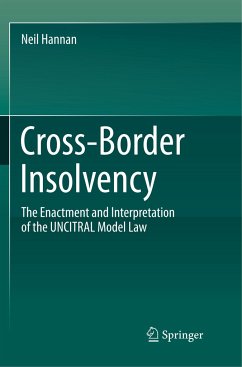
Cross-border mergers in Europe
a critical analysis of recent developments and transaction structures
Versandkostenfrei!
Versandfertig in 6-10 Tagen
20,99 €
inkl. MwSt.

PAYBACK Punkte
10 °P sammeln!
Amid discussions about a currency crisis in Europe and at a time where the post-financial crisis era is accompanied by the implementation of sweeping reforms all around the globe, cross-border mergers in the European Union are vital in many respects. First of all, cross-border mergers as a means of consolidation in the financial services industry are likely to become more and more important in the aftermaths of the crisis. Owing to intensive regulations especially the new capital requirements under BASEL III - it is envisaged that in 2012, at least as far as the smaller and regional financial ...
Amid discussions about a currency crisis in Europe and at a time where the post-financial crisis era is accompanied by the implementation of sweeping reforms all around the globe, cross-border mergers in the European Union are vital in many respects. First of all, cross-border mergers as a means of consolidation in the financial services industry are likely to become more and more important in the aftermaths of the crisis. Owing to intensive regulations especially the new capital requirements under BASEL III - it is envisaged that in 2012, at least as far as the smaller and regional financial institutions are concerned, consolidation will be taking place. Furthermore, cross-border mergers have the potential to contribute to the realization and completion of a European internal market. As far as that goes, it has to be noted that not only large corporations, but also small and medium-sized enterprises heavily rely on a legal framework allowing them to take their businesses across the border. After all, it is broadly acknowledged that small and medium-sized enterprises are the backbone of the European economy and essential for its competitiveness. To this end, the law has to provide reliable, flexible and efficient transaction structures.












